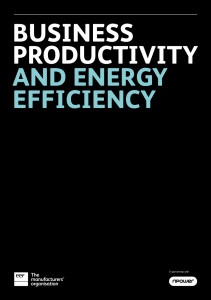According to a joint survey[1] released by EEF, the manufacturers’ organisation, and energy supplier npower, Britain’s manufacturers are increasing their investment in strategic energy management and efficiency, in order to improve their competitive position against a backdrop of rising energy costs.
The survey voices the concerns of manufacturers and recognises that investment in energy management is not without significant barriers, including the perception of extensive payback periods and businesses prioritising other investments.
Gareth Stace, head of climate & environment policy at EEF, said: “Managing higher energy costs while maintaining international competitiveness is one of the biggest challenges facing manufacturers today. The most advanced companies are systematically addressing inefficiencies in their buildings and processes to try and mitigate rising costs that come straight off the bottom line. This must remain a focus for all manufacturers.
“The prize of getting it right for companies is significant. This is not simply because of the direct benefit of reducing costs and improving our competitiveness, but because manufacturers will develop the technologies and services which will help other parts of the economy improve their efficiency.”
Wayne Mitchell, director of industrial and commercial sales and marketing at npower, commented: “Good energy management happens in the boardroom, and with the cost of energy continuing to rise, making strategic decisions with a trusted energy expert can help a business stay competitive. At npower, we’re committed to developing that kind of relationship with our manufacturing customers.”
The survey also shows that since 2002 the industrial price of gas has increased by 122%[2], while industrial electricity prices have increased by 94%[3]. As such, 96% of businesses cited reducing energy use and addressing cost as the main reason for investing in energy efficiency.
The survey also highlights that manufacturers are taking their responsibility to reduce their carbon footprint seriously. Reducing electricity bills is cited by over two thirds of manufacturers as the main benefit of investing in energy efficiency, while a similar number see a reduced footprint as the main benefit arising from their energy efficiency investments.
Two thirds of manufacturers cited that payback periods are a key barrier to engaging in energy efficiency. To help bring payback periods down, EEF has highlighted the need for the Government to review the current Enhanced Capital Allowance scheme as it is currently not meeting the needs of modern investments, especially in niche technologies.
EEF also believes that the Government should reintroduce the full Industrial Energy Efficiency Accelerator programme, which focused on the next generation of energy efficiency improvements at a sector level. It would also look at the unique challenges faced by that sector and the opportunities for step changes in how sectors use energy.
The report can be downloaded from npower.com/large-business/energy-news/npower-news/ or eef.org.uk
[1] EEF Executive Survey 2014 based on responses from 192 manufacturers across the UK
[2] DECC (2013) UK Energy in Brief 2013
[3] Comparison of 10 year period




